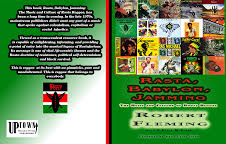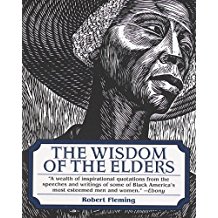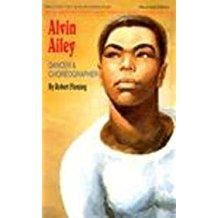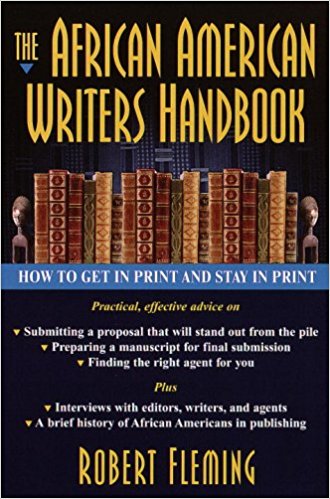NYC-based writer Robert Fleming has been a good friend for many years, dating back to our Cleveland days in the 1970s. We spent many moons in his 3rd floor flat on 143rd Street on the city’s east side cogitating on the latest record releases. Included in our collaborative experience was a quite memorable 1975 interview we did with Miles Davis at the old Eastwood Motel in the midst of Miles’ weeklong stint at the late and now-legendary Smiling Dog Saloon, a time when Miles was sporting a raucously murky 3-guitar band (Pete Cosey Reggie Lucas, and Dominique Gaumont). The latest entry in Fleming’s growing bibliography is the new book Rasta, Babylon, Jamming (The Music and Culture of Roots Reggae), about which we had some questions for good brother Fleming.
Independent Ear: I recall rather vividly one of those nights spent at your place after you had your first interview with Bob Marley. Was that encounter one of the seeds of inspiration for this book?
RF: As a I write in my introduction, I was introduced to the musical concepts of roots reggae through the words of Jimmy Cliff in the early 1970s. It was during my time at Scene Magazine. He was very candid with a clear vision of the politics and culture of the music. Cliff knew black music and the plight of American blacks during the age of Nixon. I enjoyed our talk.
Herb, dreads, and all things Jah notwithstanding, Bob Marley’s interview came later as I was really immersed in reggae. He spoke openly between spliffs about the need for global healing and the political chaos going in Jamaica. Some of the talk didn’t make it to the tape. I had no idea how sick he was at the time. Also, this bookis a tribute to my sea-faring grandfather, Will, who lived there in Jamaica before settling in Mississippi.
Inevitably when one makes the list choices this book offers its readers, including “Pivotal Reggae Pioneers,” “16 Essential Reggae Films,” and “Vintage and Modern Reggae Album Collection,” there will be either naysayers or those who decry perceived omissions or question certain choices you’ve made. How would you, or how are you prepared to respond to such criticisms?
I made those choices due to production costs and editorial restrictions. Nobody can say that I didn’t touch on the key
cultural, political, and musical themes of roots reggae. Garvey’s proud teachings, the influence of Selassie’s courage, Seaga vs. Manley and the CIA’s cunning reach. The omissions were deliberate because I didn’t want the text to be overly academic or long-winded. I’m prepared for criticism. This is a primer of the music. This is a survey of the Jamaican music of the 1970s. Nothing more, nothing less.
In the same way some of those perhaps less thoroughly immersed in the contemporary jazz scene might lament that “…ain’t been nothing new in jazz since (Pops, Bird, Coltrane, Miles, Ornette… pick and era”), as someone less thoroughly immersed in reggae who feels that contemporary reggae just doesn’t stand up to the music that Bob Marley and his generation made, how would you respond in your defense of the contemporary reggae scene, or are you of that “ain’t nothing happening since Bob…” mindset?
Roots reggae is when Jamaica found its musical identity. I wanted to reinforce the importance of this period as a golden age in this book. Before this historic period, all that existed there were the producers of Kingston’s
famed “Beat Street,” who only imported American R&B songs. Then something changed and more musicians embraced the spirituality and race pride of the Rastafarian faith. It truly translated into the music and culture of Jamaica.
The music of Marley, Toots, Steel Pulse, U-Roy, Peter Tosh, I-Threes,
Gregory Isaacs, Dennis Brown, Burning Spear, Black Uhuru – set the standard. It raised the bar like Bird, Dizzy, and Miles did with Bop. Or Ornette. Or Trane. All of the ingredients were there. There were pivotal moments, and and some of what followed paled by comparison. But never fear. There are some strong performers there now.
What would you say is the current state of contemporary reggae music?
Jamaican music is going through growing pains again. It’s on the brink of banning dancehall music. The media is full of Fiyah Roiall, the prince of conscious hip-hop rap and young stars such as Vyby Kartel, Movado, Gaza Slim, Gyptian, Aidonia, Denyque, and Chronixx. Supposedly Yashae, the new pop queen, will someday rival Queen Bey (Beyonce). Folks are singing the recent creation of young Alex Morissey, the world’s first virtual turntable, Virtual Disc Jockey. It’s where you can log on and create music mixes. Tech rules!
Given a choice of one reggae album to place in a time capsule, what would you recommend?
It’s a tie! I would recommend two albums: “Exodus” by Bob Marley and the Wailers and “Entitlement” by Ijahman.




